
Culture
00:07, 28-Dec-2017
Year-end review: The most popular Chinese movies of 2017
By Wei Yutong
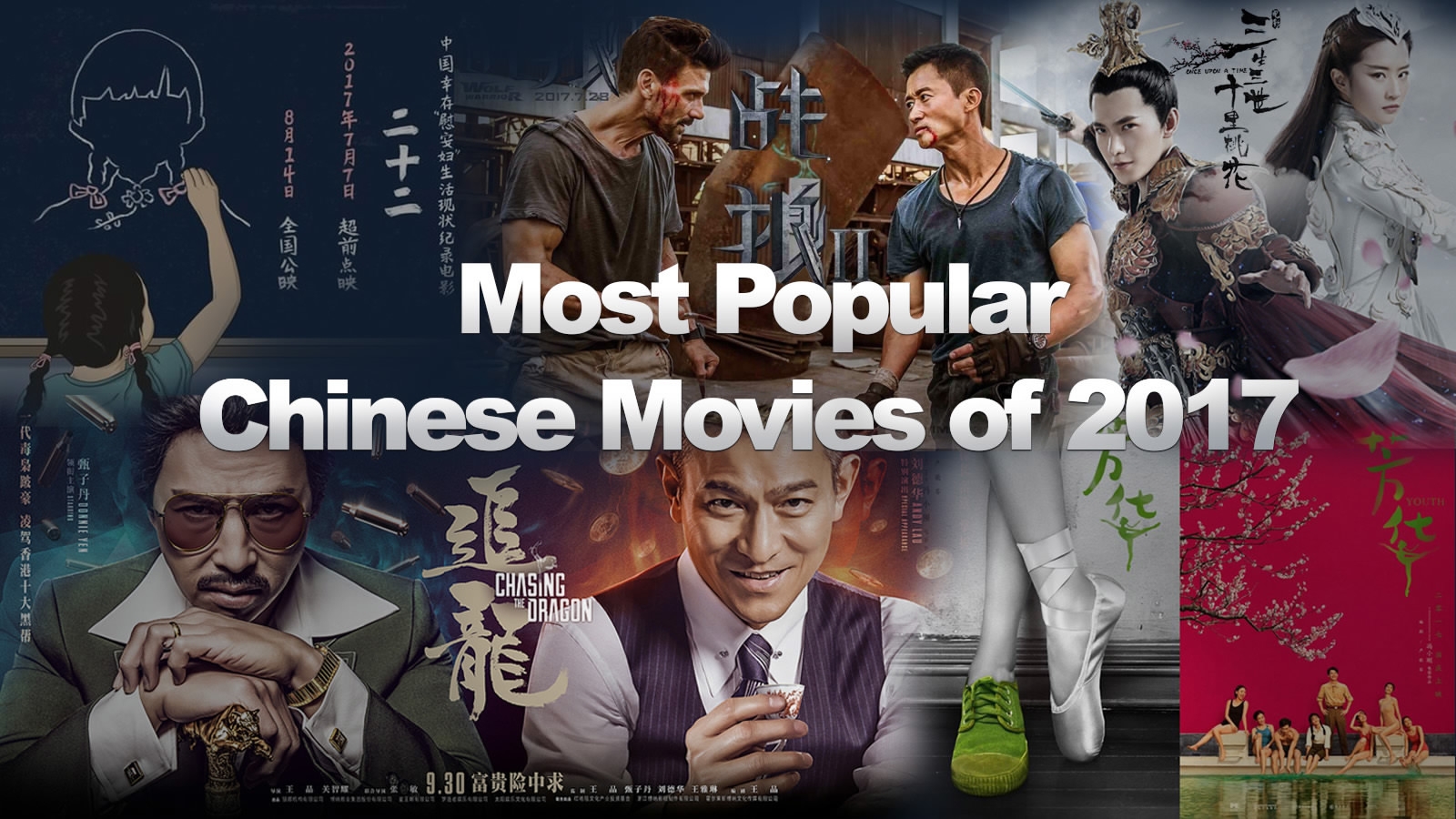
According to the State Administration of Press, Publication, Radio, Film and Television, China's box office this year exceeded 50 billion yuan (7.6 billion US dollars) for the first time ever, and Chinese movies accounted more than half of the earnings. Domestic films performed well in the Chinese box office, as films directed by both well-established names and newcomers attracted audiences. The Spring Festival (Jan. 27–Feb. 2), summer vacation (June–Aug.) and National Day holidays (Oct. 1–8) – three crucial earning periods in China's film calendar – also contributed to the thriving film market.
In light of such a monumental year in Chinese film, CGTN Digital is taking stock of some of the most popular Chinese movies of 2017:
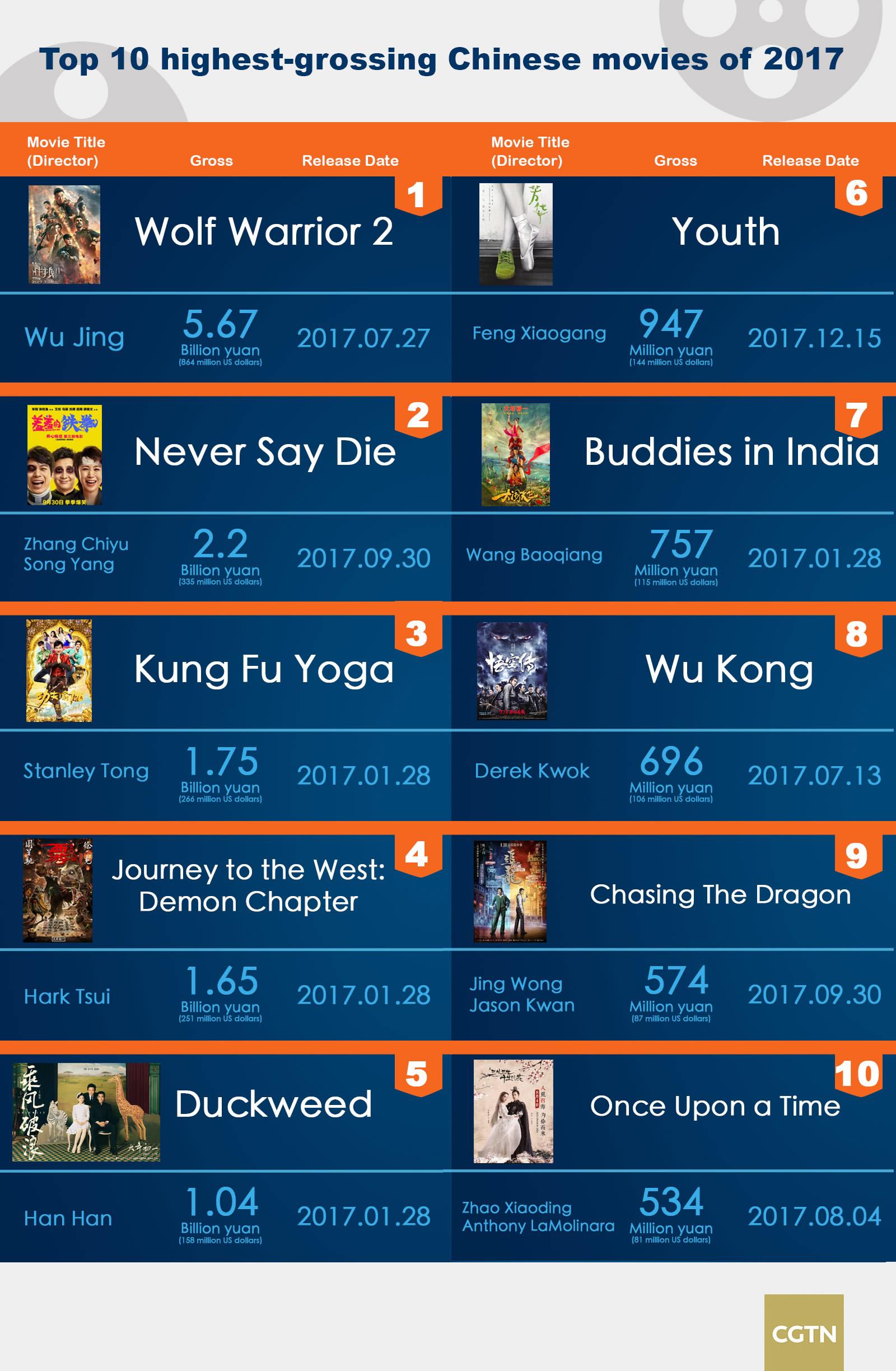
/CGTN Photo
/CGTN Photo
Military Movies
Chinese-made military movies, patriotic military movies especially, have become a more and more welcomed genre among audiences this year, which is much different from the past. Commercial appeal and patriotic story lines mix in this new type of domestic military film. Certain film elements lead people to buy tickets at the box office, including high-quality action sequences and special effects, appealing stories and the performance of the cast, as well as echoing people's patriotic values and expectations.
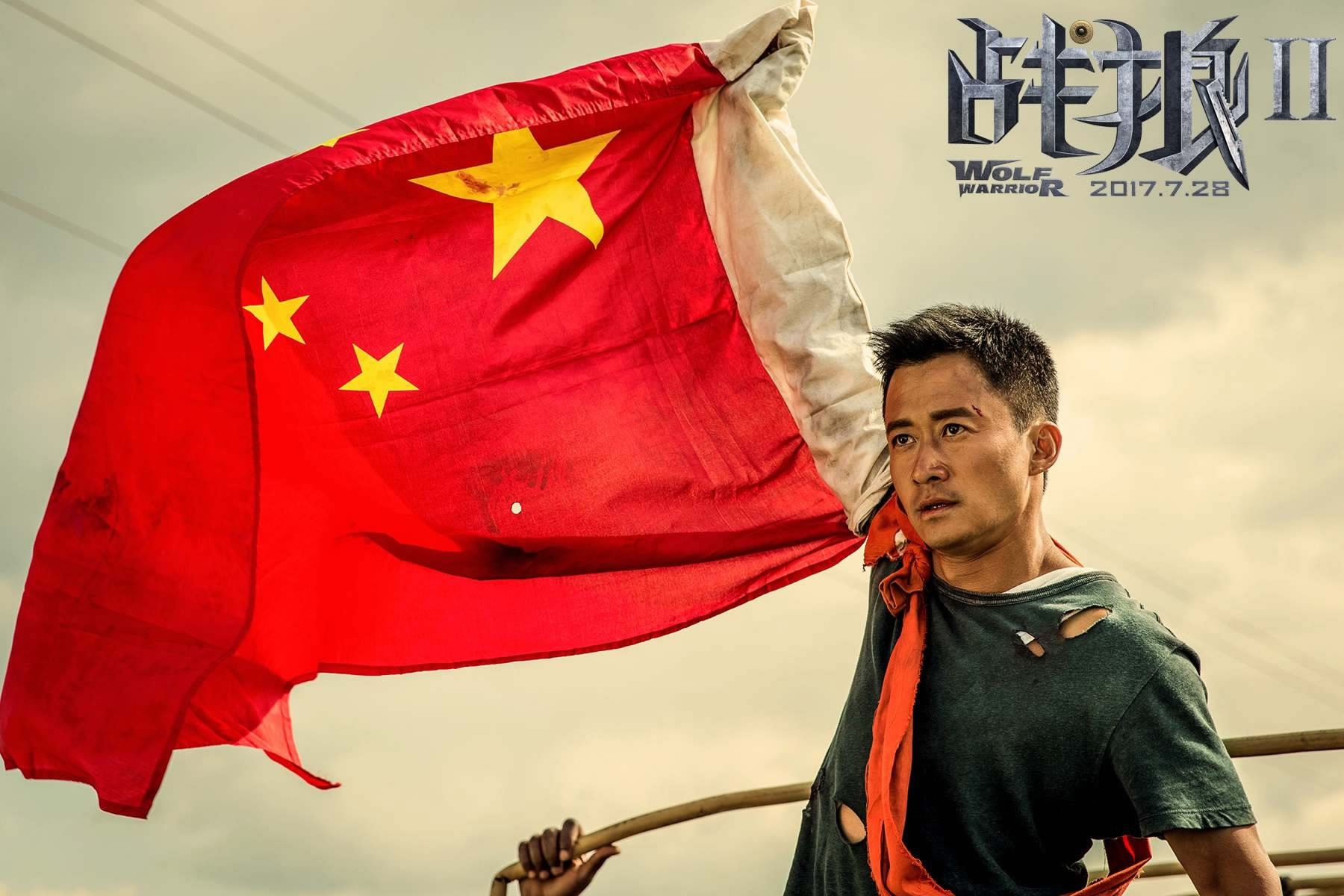
"Wolf Warrior 2" /Photo via douban.com
"Wolf Warrior 2" /Photo via douban.com
"Wolf Warrior 2" is a blockbuster domestic movie that broke China's box office record with earnings of 5.67 billion yuan (864 million US dollars), and is the fifth highest-grossing film of 2017, as well as the 55th highest-grossing film ever worldwide. It is a sequel to 2015's "Wolf Warrior." Wu Jing directed and starred in the leading role in both films. This patriotic military film tells the story of a former Chinese soldier venturing into Africa's war regions, protecting not only his compatriots but also local people from rebels and mercenaries.
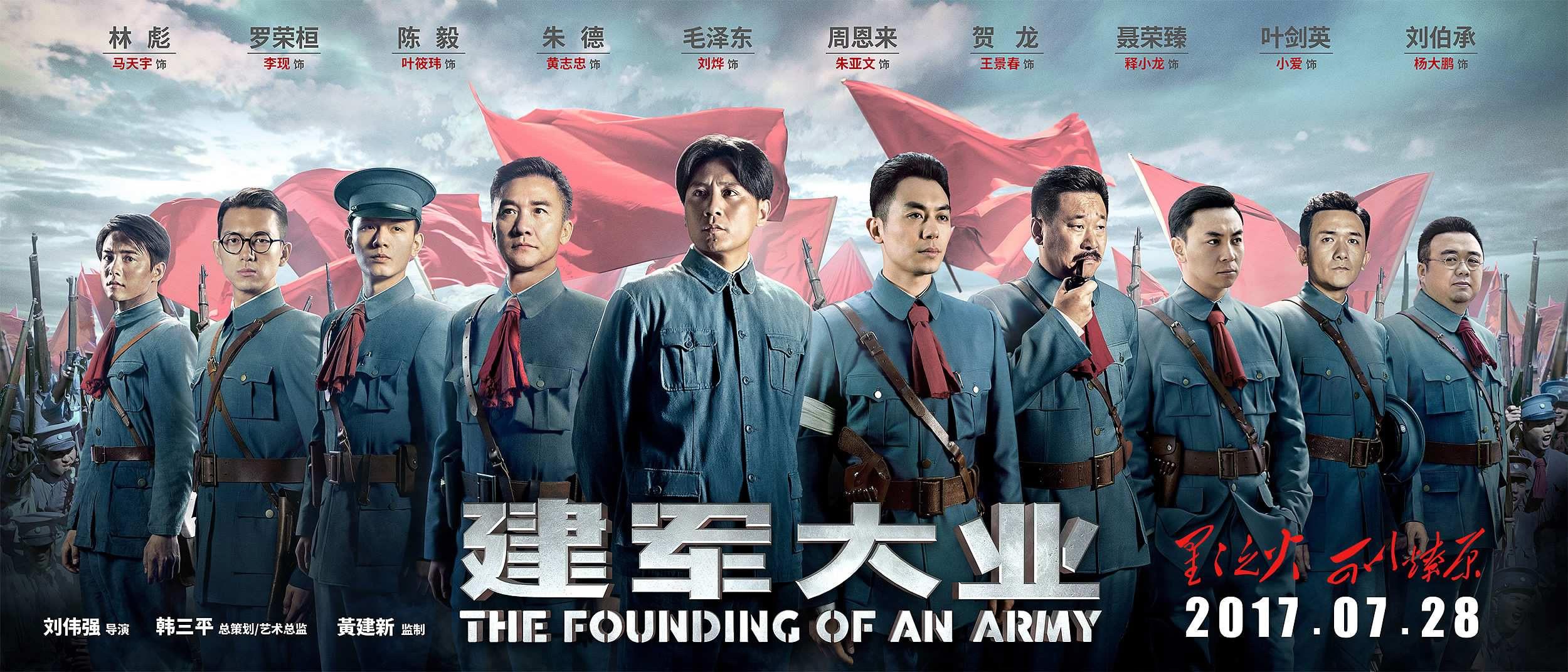
"The Founding of an Army" /VCG Photo
"The Founding of an Army" /VCG Photo
"The Founding of an Army" is a movie that honors the 90th anniversary of the People’s Liberation Army (PLA), and was the 13th highest-grossing movie at the Chinese box office with 402 million yuan (61 million US dollars). The film cast includes more than 50 famous Chinese actors and actresses performing as historical figures of the late 1920s. It shows a tough but hopeful time of Chinese modern history and the founding of the PLA. The suitability of the cast for such a historic plot triggered a wide discussion among the public before, during, after the film was released.
Comedies
Comedic movies are always welcomed in the Chinese film market, since audiences enjoy spending their spare time or holidays with family and friends watching a funny story. Three comedies raked in big paydays according to the top 10 highest-grossing domestic films ranking of 2017: "Never Say Die" pocketed 2.2 billion yuan (335 million US dollars), "Kung Fu Yoga" pocketed 1.75 billion yuan (266 million US dollars) and "Buddies in India" earned 757 million yuan (115 million US dollars).
In the last two years, low-budget Chinese comedies have shined on the silver screen without fascinating faces, renowned directors or grandiose scenes. Instead, success has been found with professional comedians, creative young directors and screenwriters, and down-to-earth funny stories that cater to the public's sense of humor.

"Never Say Die" /Photo via douban.com
"Never Say Die" /Photo via douban.com
"Never Say Die" is typical of popular low-budget comedies. Its 2.2 billion yuan made it the second largest domestic box office hit this year and the 6th highest-grossing film all-time nationwide. The film tells the story of a male boxer who accidentally switched bodies with a female journalist. They not only fight against cheating in the boxing business, but also make a few jokes along the way. Zhang Chiyu and Song Yang are both young directors. Mahua FunAge Production Co. Ltd has produced comedic stage shows for years, and it released a few films adapted from its stage plays, including 2017's "Never Say Die" and another low-budget comedy, "Goodbye Mr. Loser," which was an enormous sleeper hit in 2015.
Documentaries
Chinese documentary films have become a trend and received increasingly favorable reviews both at home and abroad over the past two years. Although most of them do not become box office hits, their thought-provoking approach to reality leaves an impression on their audience. Domestic documentarians mainly focus on restrained social and historical problems, as well as diminishing aspects of Chinese culture and tradition.
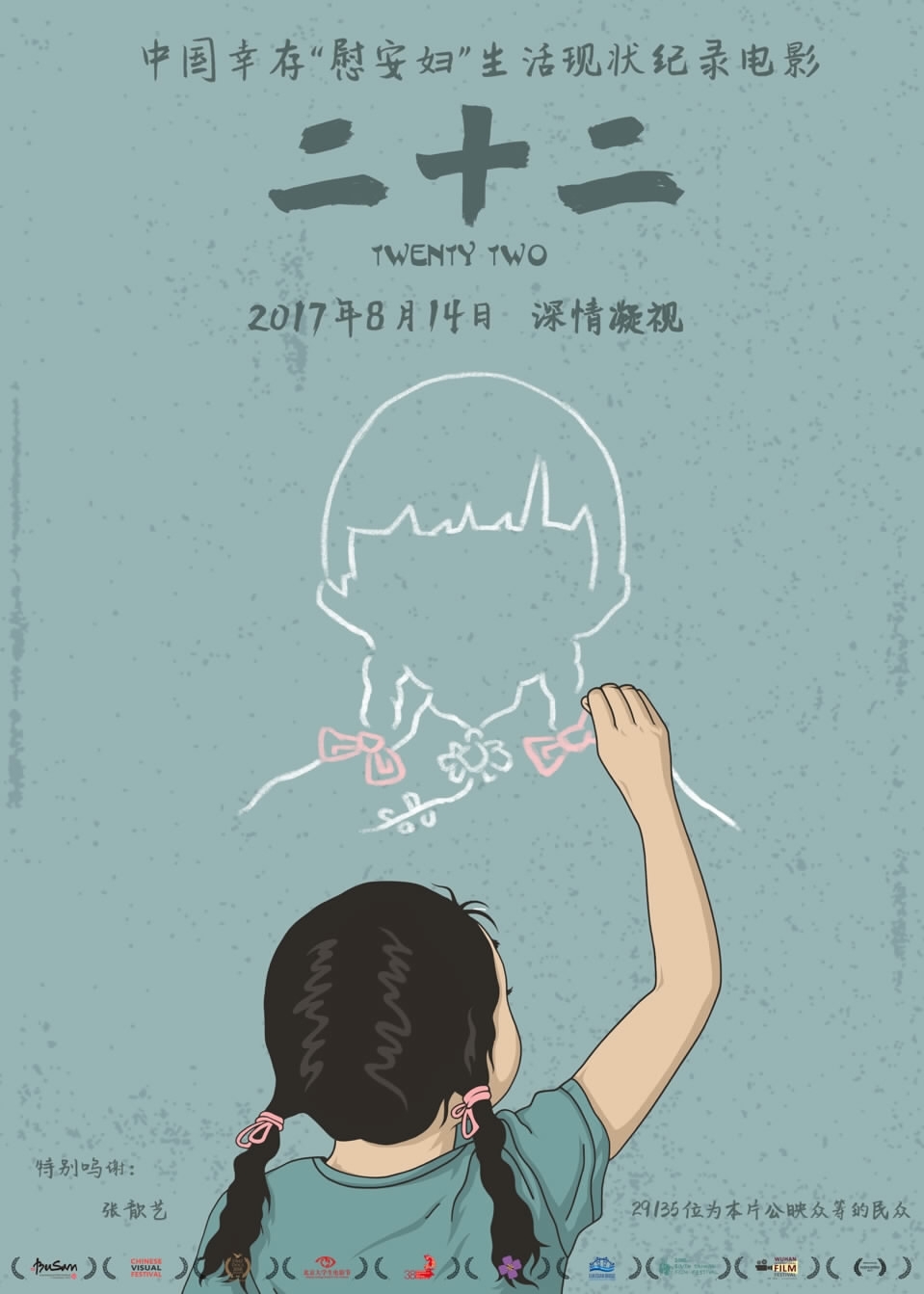
"Twenty Two" /Photo via douban.com
"Twenty Two" /Photo via douban.com
Documentary "Twenty Two" is named after the number of "comfort women" still alive at the time of its filming in 2014, detailing the lives of these elderly Chinese women through a humanistic and engaging lens. It screened in theaters in August, coinciding with the Fifth International Memorial Day for Comfort Women. Initially, the film did not find commercial success due to its somber subject and limited release. However, with the support of the public, as well as renowned directors and actors, it found its way to more screens.
Star Movies
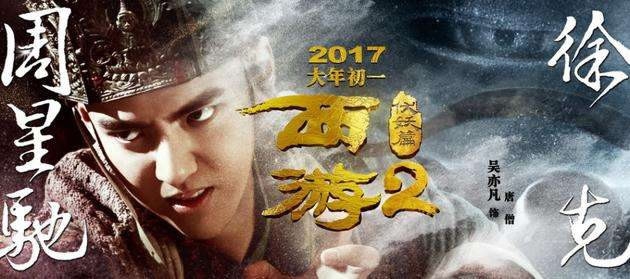
"Journey to the West: Demon Chapter" /Photo via douban.com
"Journey to the West: Demon Chapter" /Photo via douban.com
Famous actors and actresses, renowned directors and the originality of the story are all significant factors in piquing the interest of Chinese audiences. Superstars usually contribute heavily to the box office. In fact, taking a look at the top 10 highest-grossing domestic movies this year, several household names can be found: directors such as Hark Tsui, Feng Xiaogang, Jing Wong; actors such as Jackie Chan, Andy Lau, Donnie Yen; actor-turned-director Wang Baoqiang and writer-turned-director Han Han. The source of an adapted films also plays an important role in its success, as Chinese audiences prefer popular novels – both traditional and web-based – to become movies. However, as Chinese audiences become more diverse and harder to cater to, star-studded casts, directors and stories need better collaboration in order to produce popular films.
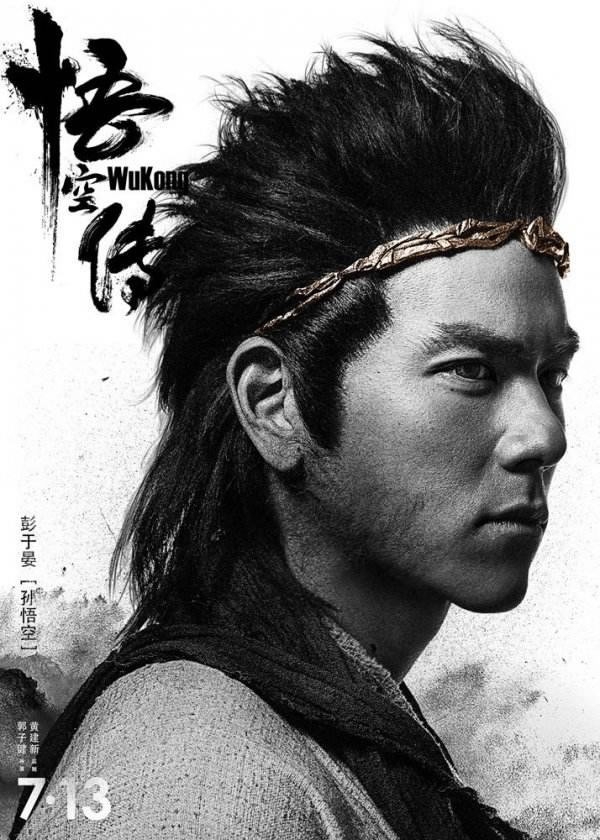
"Wu Kong" /Photo via douban.com
"Wu Kong" /Photo via douban.com
"Journey to the West: Demon Chapter," directed by Hark Tsui and written by Stephen Chow, and "Wu Kong," directed by Derek Kwok, are both fantasy-action-adventure films derived from "Journey to the West," which is one of the Four Great Classical Novels of Chinese literature known and liked by most Chinese. The actors playing in the lead roles of both films are also stars with tens of millions of fans. The former movie tells the story of a monk, Tang Sanzang, who is accompanied by his three disciples – Sun Wukong, Zhu Bajie and Sha Wujing – who battle demons on their journey to the Western Paradise. The latter film tells the story of the Monkey King, Wukong, setting out to rebel against the gods in the heavenly kingdom for being unwilling to bow down to his own destiny.
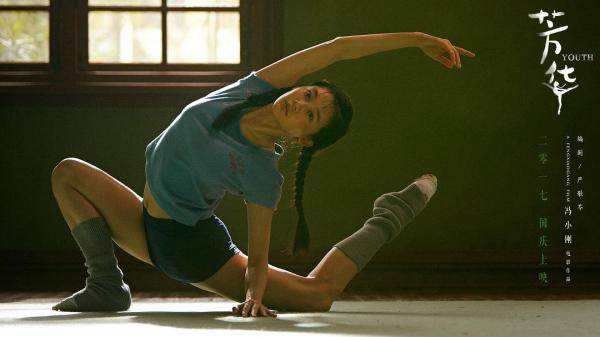
"Youth" /Photo via douban.com
"Youth" /Photo via douban.com
"Youth," directed by Feng Xiaogang, is adapted from a Chinese novel with the same name. It tells the tale of a PLA song and dance ensemble, and depicts the Sino-Vietnamese border war – a period rarely shown in Chinese movies. Most of the cast are newcomers, but their performance and the emotional story exceed expectations. Its box office has crossed 947 million yuan (144 million US dollars) since being released on December 15 and it continues to rise.

SITEMAP
Copyright © 2018 CGTN. Beijing ICP prepared NO.16065310-3
Copyright © 2018 CGTN. Beijing ICP prepared NO.16065310-3